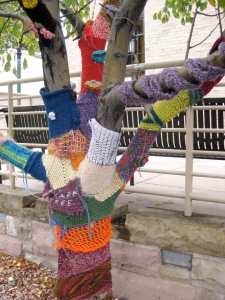
Norman Rockwell’s “Marbles Champion” ~ if you think girls can’t compete with boys, you need to rethink that.

Rockwell’s “Big Decision” ~ the catcher has a different point of view than the coach. Below, the perspective from the “High Board” is different than from the side of the pool.
“Running around like a chicken with its head cut off” isn’t just a simile for a frantically busy person. It’s also an actual description.
When I was eleven years old, a farmer knew that my mother had been raised on a farm, and as a gift he delivered to our house a fresh chicken for our dinner. It was a very fresh chicken. Still alive.
In our back yard, he quickly balanced the chicken on a board, lifted an ax and cut off the chicken’s head. The chicken body ran like crazy. We had a tall picket fence enclosing our big back yard. It was painted white. By the time the chicken dropped, there were very few pickets that didn’t have streaks, smears or spatters of blood. (You can thank me for not having pictures of this.)
The farmer used our garden hose to spray the fence while my mother plucked and cleaned out the chicken. That night our family had fresh fried chicken for dinner, but I didn’t eat any of it. The fence still had faint stains, and my mind still saw the running chicken. It was a long time before I realized what my mother tried to help me see: the chicken incident, like many things in life, was a matter of perspective. To her, it was a generous gesture from a farmer bringing fresh chicken to a former farm woman who was probably tired of store-bought frozen chicken. I couldn’t understand how my mother, who wouldn’t let me see THE BLOB movie, let me watch a chicken run with its head off.
Henry David Thoreau said, “The question is not what you look at, but what you see.” And C.G. Jung said, “Everything that irritates us about others can lead us to an understanding of ourselves.” I doubt they were referring to chickens, but possibly they were encouraging us to understand ourselves through our perspectives.
The quote I think applies most to Mom’s perspective about things that were thrown her way in life is by J.M. Barrie: “Nothing is really work unless you would rather be doing something else.” My mother had the amazing ability to appreciate people and their good intentions, even if they caused her to change her plans or do more work.
Even before my father’s Alzheimer’s and then her own dementia, my mother was not a naïve Pollyanna. She was an intelligent, perceptive, strong-thinking realist who stood firm when necessary. She was also a good listener with a kind heart and open hands to help others. And she knew how to keep life’s chickens in perspective.
* * * * *
Tracy Karner has a superb post on CBT (Cognitive Behavioral Therapy), effective for changing a number of problems by establishing a more hopeful perspective.
http://tracyleekarner.com/2014/03/07/c-is-for-cbt-living-well-despite-everything/



















